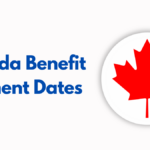Check out the latest updates on the Average Middle-Class Income in Canada: Province Wise Average Income Here. The Cost Of Living in Canada may vary depending on various factors. It could be due to the high cost of living, location, lifestyle, and a lot more. In this article, we have shared the average middle-class income based on the data we have collected through multiple sources.
Average Middle Class Income in Canada
Millions of households reside in Canada, and the majority of them have at least two children. As per the official reports published on the leading portal, around forty-three per cent of Canadians have a minimum of two children. The highest paying job among all sectors is healthcare. Followed by finance, technology, and engineering sectors are considered.

The average income-earning families with two children aged under seventeen years and dependent parents spent around $293,000. Around 15% of Canadians can make more than 15% of their annual earnings in salaries.
Average Middle Class Income in Canada Overview
| Article Title | Average Middle Class Income 2024 |
| Country Name | Canada |
| Year | 2024 |
| Average Income of Canadian | $54,600 to $105,000 annually |
| Highest Minimum wage per hour (province-wise) | $16.75 in British Columbia |
| Highest Average salary province-wise | $72,280 in Nunavut |
| Category | Financial Aid |
Understanding Average Middle Class Income in Canada
As per Statistics Canada, the middle-class income for single individuals living in Canada ranges from $32,000 to $91,000 annually. Kindly note that the data we have shared is from the previous year. Whereas the middle-class income for a family of four ranges from $64,000 and $182,000 in a year. This data is based on an analysis of household income data and is modified depending on the family size and composition.
Canada is one of the top 2o countries world wide offering high salaries to citizens. As of 2023, the average national pay was anticipated to rise by 4.2%. Among all the provinces and territories, Nunavut has the highest average middle-class income. Hope that the table we have shared above helps you determine which province you need to transport.
Province Wise Average Income
After levying the taxes, the average earning is around $66,800, while the median earning is around $66,800 before tax reduction. If you are willing to reside in Canada or wish to know how much you should earn to survive, it is essential to know the average income. Here is the province-wise average income in Canada.
| Province | Average middle-Class Income (Family) 2023 | Average Income for a Single Person in 2023 |
| British Columbia | $67,500 | $66,232 |
| Alberta | $77,700 | $74,237 |
| Saskatchewan | $67,700 | $88,424 |
| Manitoba | $63,000 | $58,500 |
| Ontario | $70,100 | $63,369 |
| Quebec | $59,700 | $57,506 |
| Prince Edward Island | $59,400 | $46,160 |
| Nova Scotia | $57,500 | $56,550 |
| New Brunswick | $56,900 | $57,336 |
| Newfoundland and Labrador | $59,300 | $52,562 |
| Yukon | $86,300 | $62,500 |
| Nunavut | $118,000 | $74,900 |
| Northwest Territories | $127,000 | $77,900 |
Provinces like Toronto, Vancouver, or Montreal are more expensive as compared to other smaller provinces for accommodation and housing rates. As per the reports publicized by the Labour Force Survey, the standard payout in Canada was approximately $64,850 yearly in October 2023.
Tax Rates Canada 2024
In Canada, the tax brackets range from 15 to 33%. Apart from these, each province also charges tax but these taxes are collected by Revenue Canada. Kindly go through the table we have shared, which showcases the tax rate based on the income you hold.
| Tax Rate | Income |
| 15% | On the portion of income $0 – $53,359 |
| 20.5% | On the portion of income $53,359 – $106,717 |
| 26% | On the portion of income $106,717 – $165,430 |
| 29% | On the portion of income $165,430 – $235,675 |
| 33% | On the portion of income $235,675 plus |
In Canada, tax rates are levied based on the category you fall into. It is important to note that the rates we have shared reflect before-tax income.
All We Know
With rapid urbanization, the cost of living has been increasing constantly. If you are a parent, the expenditures can be reduced, as the elder child can look after the younger one instead of hiring a nanny, and the toys of the elder kid could be handed to the younger one to avoid the additional cost of buying new toys.
We would like to inform you that the food pricing is the same throughout the country, except for residents living in the North, where food rates can be up to four times what it is in the South. The nation also has a universal, publicly funded healthcare system, also known as Medicare, that delivers support to all Canadian residents and permanent visa holders.
To read more articles, click here.

Ruth Alba is a dedicated writer with a passion for creating original, insightful content. With a focus on delivering plagiarism-free work, he brings clarity and creativity to each piece. His work reflects a commitment to integrity, originality, and engaging storytelling that resonates with readers.



